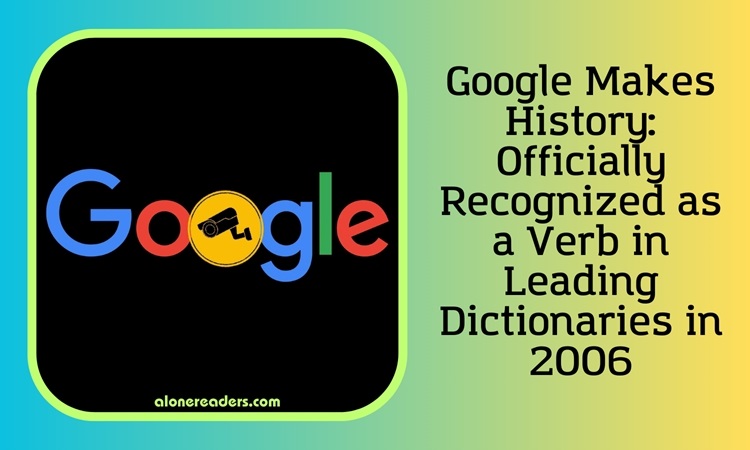
In 2006, a significant linguistic milestone was reached when the term "Google" was officially recognized as a verb in two of the most prestigious English dictionaries: Merriam-Webster and the Oxford English Dictionary. This recognition was more than just a nod to a popular brand; it was a testament to the profound impact of technology on language and communication. This article delves into the journey of "Google" from a company name to a universally recognized verb, reflecting on the broader implications for language and culture.
Google's Beginnings
Founded in 1998 by Larry Page and Sergey Brin, Google quickly rose to prominence as a leading search engine. Its name, a play on the word "googol" (a term for a 1 followed by 100 zeros), symbolized the vast amount of information the search engine aimed to organize.
The Cultural Impact of Google
As Google became more integrated into daily life, its brand name gradually transformed into a verb. "To Google" meant to search for information online, reflecting the company's dominance in the digital information age. This linguistic shift was not just a change in vocabulary but also a sign of how deeply technology had woven into the fabric of everyday life.
The Criteria for Inclusion
For a word to be included in these esteemed dictionaries, it must meet specific criteria. It should be widely used over a considerable period and have a clear meaning. "Google," as a verb, met these requirements by 2006, showcasing its widespread usage and clear definition in the context of internet search.
The Official Entry
In 2006, both Merriam-Webster and the Oxford English Dictionary included "Google" as a verb. This official recognition marked a significant moment in the English language, highlighting the evolving nature of communication in the digital era.
Language Evolution and Technology
The inclusion of "Google" as a verb illustrates how technology shapes language. As new technologies emerge and become integral to society, the language adapts to accommodate these changes, often blurring the lines between brand names and common vocabulary.
Cultural Significance
The verb "Google" represents more than just a search action; it signifies the era of information accessibility and the internet's role in daily life. Its entry into the dictionary reflects the cultural significance of the digital age, where information is at our fingertips.
Continued Evolution
As technology continues to advance, language will inevitably evolve alongside it. The inclusion of "Google" in the dictionary is just one example of how digital culture influences language. Future technological innovations will likely lead to more such inclusions.
The Role of Dictionaries
Dictionaries play a crucial role in documenting and validating these linguistic changes. By including words like "Google," they acknowledge the dynamic nature of language and its ability to adapt to new realities.
The recognition of "Google" as a verb in 2006 by Merriam-Webster and the Oxford English Dictionary was a landmark event in the history of the English language. It underscored the profound influence of technology on communication and culture. As we continue to navigate the digital age, it will be fascinating to witness how language evolves to capture the essence of an ever-changing technological landscape.